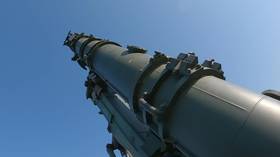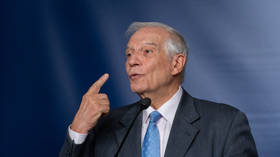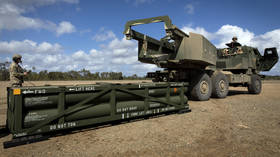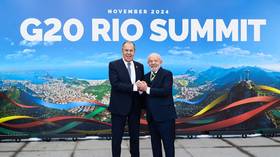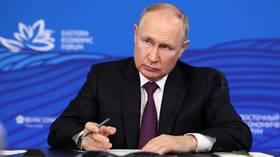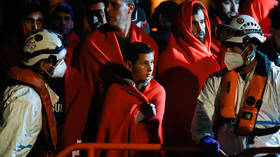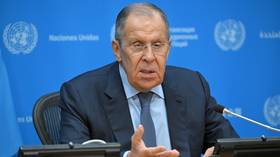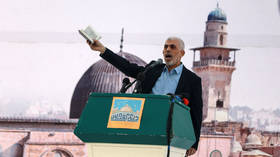UK announces doubling of military training for Ukrainian army – now for 2,000 soldiers
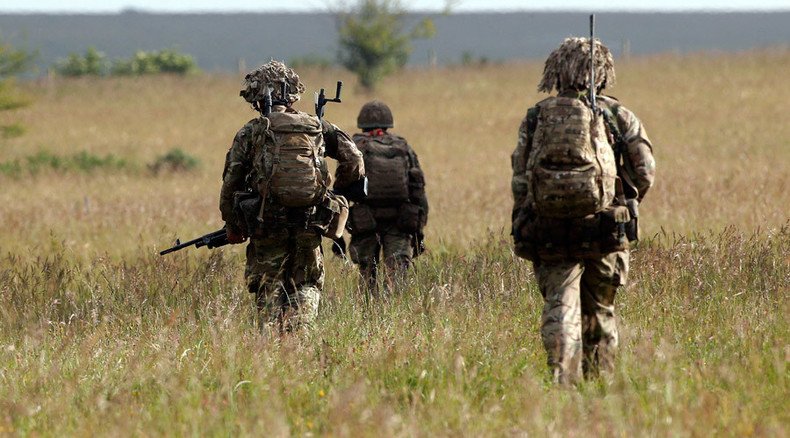
The British Army will be investing more into training the Ukrainian army by increasing the number of soldiers in the program to 2,000, Defense Secretary Michael Fallon has announced. He has described the conflict in eastern Ukraine as “red hot.
Fallon made the pledge during a visit to Kiev on Tuesday, saying that the UK will “double the amount of [Ukrainian] troops” trained from over 1,000 to 2,000 by the end of the year.
1,800 troops from 18 states: NATO launches biggest ever drill in #Ukrainehttp://t.co/HVkPBiiRyepic.twitter.com/cXqxQLkN13
— RT (@RT_com) 21 июля 2015He told Ukrainian Prime Minister Arseniy Yatsenyuk that his visit was intended to “reaffirm” UK’s support for Ukraine. “Seven thousand people have already died in the Ukraine, right on the doorstep of Europe … This is not a frozen conflict, it’s still red hot,” Fallon said, adding: “We are not going to turn our back on Ukraine.”
US marines flying with unlicensed arms to #Ukraine detained in Vienna, sent home http://t.co/cR9MSfVpVepic.twitter.com/1XKSHUnRkV
— RT (@RT_com) 31 июля 2015Currently, there are 75 British military trainers in Ukraine, divided into 13 teams in six locations. They organize 10-day courses in intelligence, infantry, medical and logistical skills. The new training will also include ground threat awareness, ways to organize defensive positions in urban environments, operational planning and engineering lessons, Fallon said.
Western powers have been increasing their funding and training for the Ukrainian army in the past few months. Ukrainian troops have also been receiving military training from the US and Canada.
At the end of July, NATO launched its biggest drill in Ukraine to date, bringing together 1,800 troops from 18 countries. “It is safe to say that this is the largest multinational exercise held in Ukraine to date,” said Don Wrenn, a spokesman for US Army Europe.
Russia’s Foreign Ministry warned that NATO drills in western Ukraine threaten the peaceful settlement of the conflict in the east of the country.
NATO’s actions are fueling “revanchist moods among the ‘war party’ in Kiev, which jeopardize the outlined progress in the peaceful settlement of a deep internal crisis in Ukraine,” the ministry said in a statement.
Moscow has called the Ukraine drills “a clear manifestation of NATO’s course of unconditional support for the current policy of the Kiev authorities in the southeast of Ukraine, which leads to civilians dying on a daily basis in the region.”
Following NATO’s drills, the US military announced its intentions to expand their mission in Ukraine beyond the National Guard to boost the army’s “defense capabilities,” the US State Department said in late July.
READ MORE: Ex-Ukraine PM launches ‘salvation committee’ to win power in Kiev, end civil war
The expanded Western training comes after Ukrainian President Petro Poroshenko announced that the number of government forces deployed in the conflict is over 60,000 and called for the authorities to work hard to ensure that the military gets new equipment, financial support, and proper Western training for soldiers.
Kiev is also pushing for Washington to provide lethal military aid to Ukraine, which the US has so far been reluctant to do.
“We expect to get additional support from the United States,” PM Yatsenyuk told AP earlier this month. “We do understand that some NATO allies are a little bit reluctant in the decision to supply defensive weapons to Ukraine. But this is not just about Ukraine. This is about the security of the world.”
Kiev launched a military operation in Donbass in the southeast of Ukraine last April after locals rejected the new coup-imposed authorities in the capital and demanded more autonomy. At least 6,400 people have been killed in the conflict, according to UN estimates.


